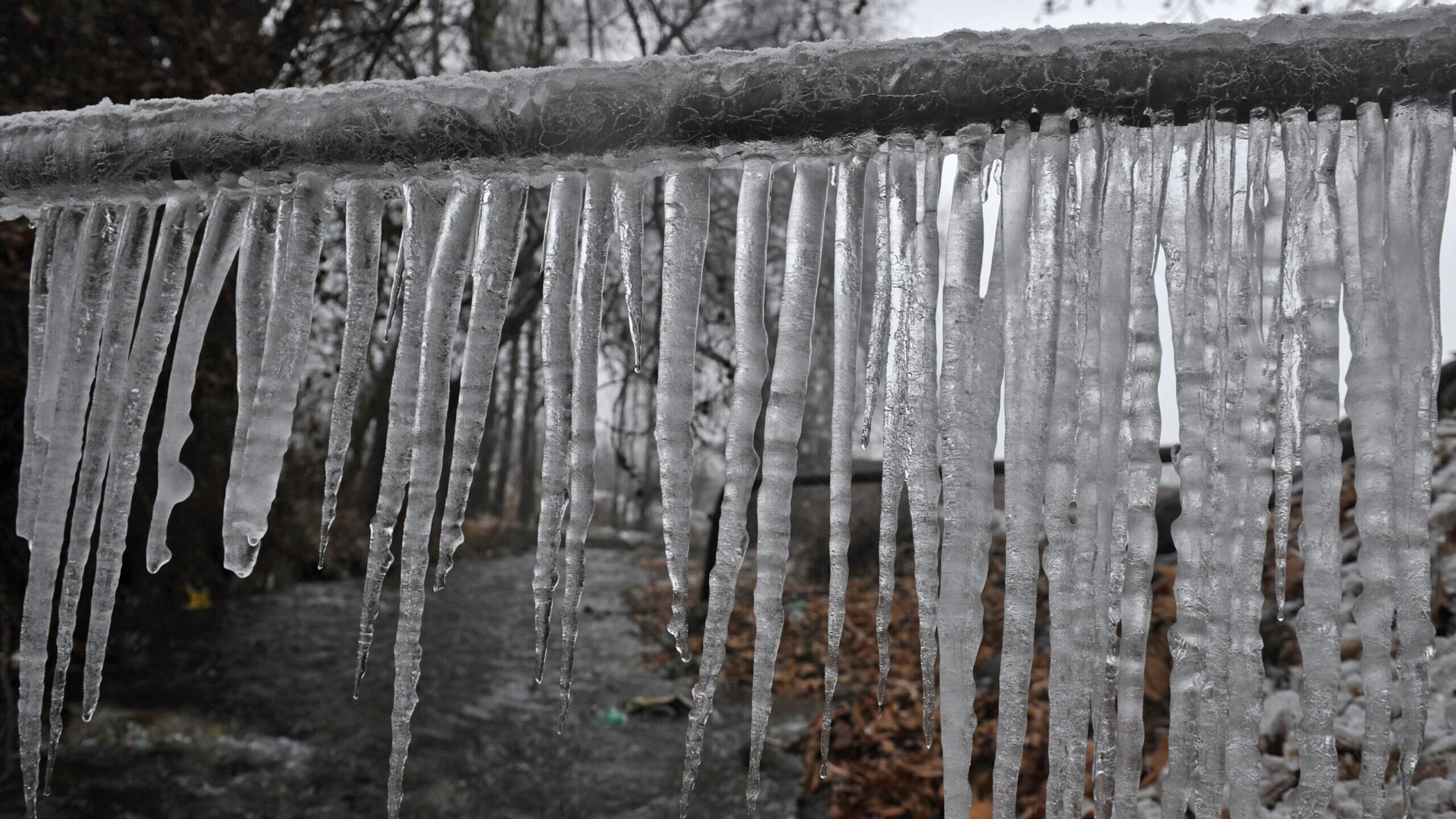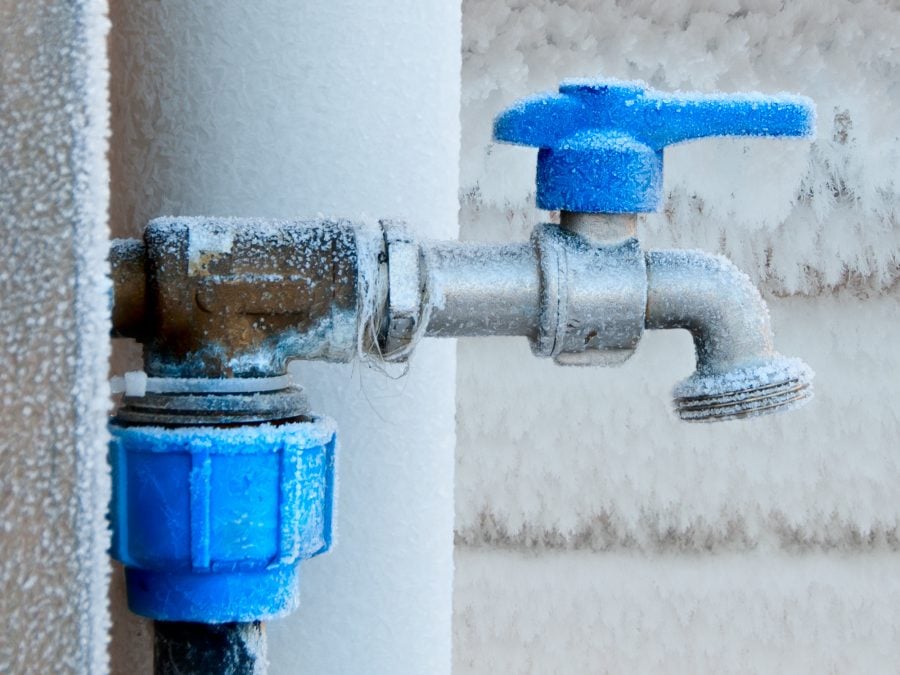The writer is making a few good observations on the subject of How to Prevent Your Pipes From Freezing as a whole in this post which follows.

Winter can ruin your pipes, particularly by freezing pipelines. Right here's how to prevent it from occurring and what to do if it does.
Introduction
As temperatures decrease, the risk of icy pipelines rises, possibly causing expensive repair work and water damages. Understanding how to avoid frozen pipelines is critical for home owners in cold climates.
Prevention Tips
Protecting at risk pipes
Wrap pipes in insulation sleeves or use warmth tape to protect them from freezing temperature levels. Focus on pipes in unheated or exterior areas of the home.
Home heating methods
Keep indoor spaces effectively warmed, especially locations with pipes. Open up cabinet doors to enable cozy air to distribute around pipes under sinks.
Exactly how to recognize frozen pipes
Seek decreased water circulation from taps, unusual smells or sounds from pipelines, and noticeable frost on subjected pipes.
Long-Term Solutions
Architectural adjustments
Think about rerouting pipes far from outside walls or unheated areas. Include additional insulation to attic rooms, basements, and crawl spaces.
Updating insulation
Purchase top notch insulation for pipelines, attic rooms, and walls. Correct insulation helps keep constant temperature levels and decreases the risk of frozen pipes.
Shielding Outside Pipes
Yard tubes and outdoor faucets
Separate and drain pipes garden hose pipes before wintertime. Mount frost-proof spigots or cover outdoor taps with insulated caps.
Understanding Icy Pipes
What triggers pipelines to ice up?
Pipes ice up when exposed to temperature levels below 32 ° F (0 ° C) for extended periods. As water inside the pipelines ices up, it broadens, putting pressure on the pipe walls and potentially causing them to burst.
Threats and problems
Icy pipelines can bring about water interruptions, property damages, and costly repair work. Burst pipelines can flood homes and cause comprehensive structural damage.
Indicators of Frozen Pipes
Determining frozen pipes early can avoid them from rupturing.
What to Do If Your Pipes Freeze
Immediate activities to take
If you suspect icy pipelines, keep faucets open to relieve stress as the ice thaws. Use a hairdryer or towels taken in hot water to thaw pipelines slowly.
Conclusion
Avoiding frozen pipelines needs aggressive steps and quick reactions. By comprehending the causes, indications, and safety nets, house owners can safeguard their pipes during cold weather.
Helpful Tips to Prevent Frozen Pipes this Winter
UNDERSTANDING THE BASICS: WHY PIPES FREEZE AND WHY IT’S A PROBLEM
Water freezing inside pipes is common during the winter months, but understanding why pipes freeze, and the potential problems it can cause is crucial in preventing such incidents. This section will delve into the basics of why pipes freeze and the associated problems that may arise.
THE SCIENCE BEHIND FROZEN PIPES
When water reaches freezing temperatures, it undergoes a physical transformation and solidifies into ice. This expansion of water as it freezes is the primary reason pipes can burst. As the water inside the pipe freezes, it expands, creating immense pressure on the walls. If the pressure becomes too great, the pipe can crack or rupture, leading to leaks and water damage.
FACTORS THAT CONTRIBUTE TO PIPE FREEZING
Low Temperatures: Extremely cold weather, especially below freezing, increases the risk of pipes freezing. Uninsulated or Poorly Insulated Pipes: Pipes located in unheated areas, such as basements, crawl spaces, or attics, are more prone to freezing. Insufficient insulation or lack of insulation altogether exacerbates the problem. Exterior Wall Exposure: Pipes running along exterior walls are susceptible to freezing as they encounter colder temperatures outside. Lack of Heating or Temperature Regulation: Inadequate heating or inconsistent temperature control in your home can contribute to frozen pipes. PROBLEMS CAUSED BY FROZEN PIPES
- Pipe Bursting: As mentioned earlier, the expansion of water as it freezes can cause pipes to burst, resulting in significant water damage.
- Water Damage: When pipes burst, it can lead to flooding and water damage to your property, including walls, ceilings, flooring, and personal belongings.
- Structural Damage: Prolonged exposure to water from burst pipes can compromise the structural integrity of your home, leading to costly repairs.
- Mold and Mildew Growth: Excess moisture from water damage can create a favorable environment for mold and mildew growth, posing health risks to occupants.
- Disrupted Water Supply: Frozen pipes can also result in a complete or partial loss of water supply until the issue is resolved.
WHY CERTAIN PIPES ARE MORE PRONE TO FREEZING
- Location: Pipes located in unheated or poorly insulated areas, such as basements, crawl spaces, attics, or exterior walls, are at higher risk of freezing.
- Exterior Pipes: Outdoor pipes, such as those used for irrigation or exposed plumbing, are particularly vulnerable to freezing as they are directly exposed to the elements.
- Supply Lines: Pipes that carry water from the main water supply into your home, including the main water line, are critical to protect as freezing in these lines can affect your entire plumbing system.
- Underground Pipes: Pipes buried underground, such as those connected to sprinkler systems or outdoor faucets, can be susceptible to freezing if not properly insulated.
https://busybusy.com/blog/helpful-tips-to-prevent-frozen-pipes-this-winter/

I was introduced to that editorial about How to prepare your home plumbing for winter weather through an acquaintance on another site. Be sure to take the opportunity to promote this write-up if you enjoyed reading it. We cherish your readership.
Call Today